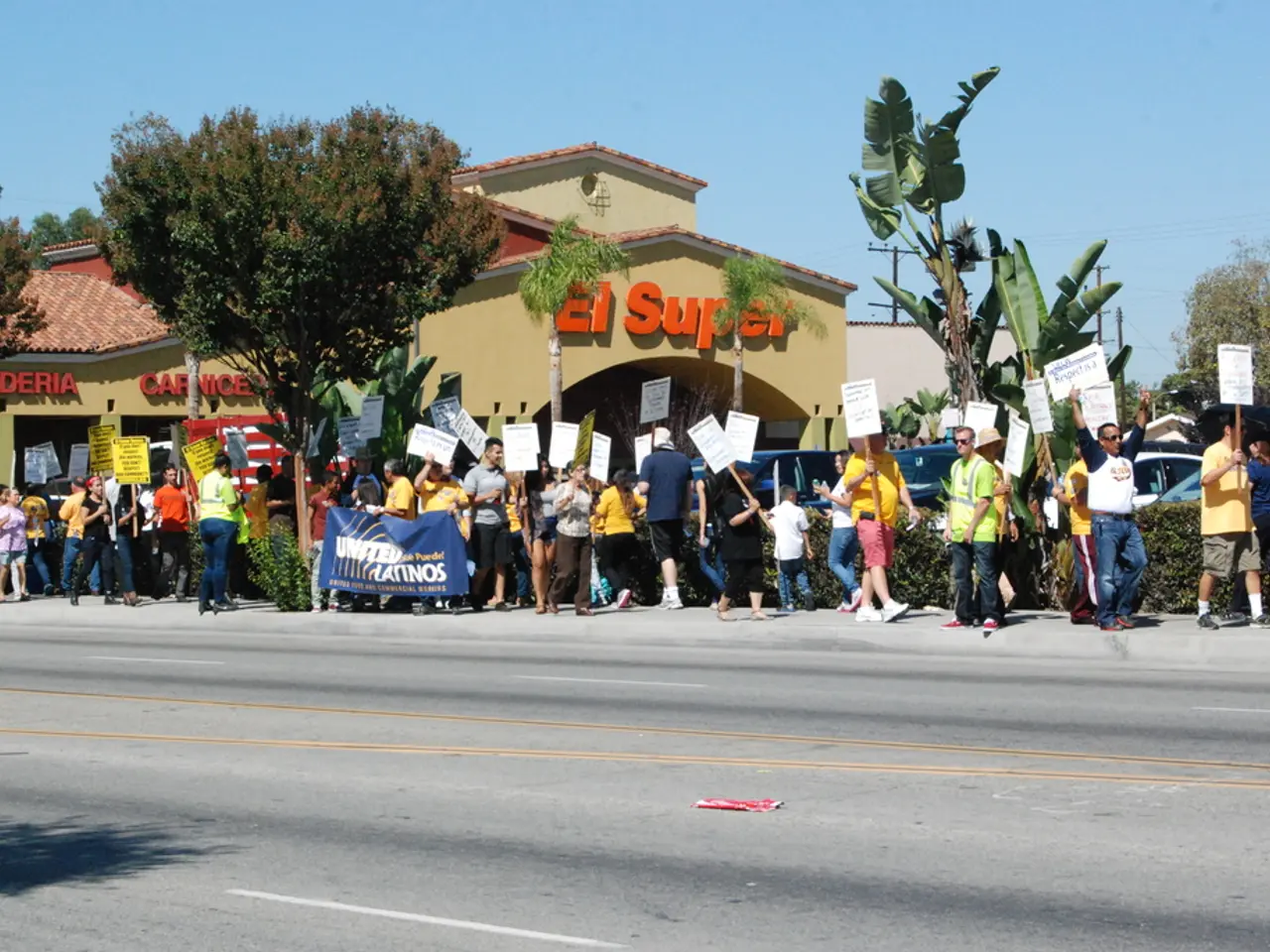Trump urges Federal Reserve board to take over interest rate decisions if Powell remains resistant to rate cuts
In a recent turn of events, the U.S. Federal Reserve has maintained its interest rates at their current level, despite President Donald Trump's repeated demands for a significant rate cut. This decision was made by a 9-2 vote, marking a significant moment as it marks the first time in over 30 years that two Fed governors have dissented.
The president has argued that there is virtually no inflation, despite the Fed's preferred measure running at an annual rate of 2.6%. However, his calls for slashing the Fed's benchmark rate by 3 percentage points have fallen on deaf ears. Trump has cited moves by European central banks as a reason for rate cuts and has demanded immediate and steep rate relief from the Fed.
The president's frustration towards Federal Reserve Chair Jerome Powell is no secret. Trump has publicly expressed strong criticism of Powell and has indicated intentions to remove him, though he publicly claims he "most likely" will not fire Powell. Trump has called Powell derogatory names and criticized his policies on interest rates, suggesting Powell should resign or be removed before his term ends in May 2026.
However, any attempt to remove Powell without cause would be legally complicated and unprecedented without proper cause as defined by law and affirmed by the Supreme Court. The Chair can only be removed for cause, such as misconduct or neglect of duty, not simply due to policy disagreements. This makes it difficult for Trump to remove Powell before his term expires without facing a legal firestorm.
Trump has also been investigated for possible grounds for removal due to cost overruns in the Fed's $2.5 billion renovation projects. The White House has reportedly looked into whether Powell could be fired for cause, but the legality of such an action remains unclear.
Despite the political and legal challenges, Trump has continued to put pressure on the Fed. He has even suggested that if Powell continues to refuse to lower interest rates, the Fed board should "assume control."
The seven members of the Fed Board of Governors are nominated by the U.S. president and confirmed by the U.S. Senate. Trump can put his Senate-confirmed pick in the seat after Powell's term ends. Until then, the Fed has the responsibility of stabilizing prices and maximizing employment, a task that remains ongoing.
In the midst of this political drama, Powell has remained steadfast in his role. The Fed chair has been subjected to verbal attacks by U.S. President Donald Trump, with Trump calling Powell "stubborn" and "a stubborn MORON" on his Truth Social platform. Despite this, Powell has continued to focus on his duty to maintain the stability of the U.S. economy.
[1] Source: CNN Business, New York Times, and Washington Post articles on the subject.
- The ongoing tension between President Donald Trump and Federal Reserve Chair Jerome Powell, rooted in disagreements over economic policy and interest rates, has resulted in a high-profile political drama that is being closely watched by the global business community and general news outlets.
- As Europe grapples with its own economic challenges and war-and-conflicts, the U.S. finds itself embroiled in a domestic crisis involving policy-and-legislation and crime-and-justice, as Trump's efforts to remove Powell from his position amidst legal complications and verbal attacks have caught the attention of the American public and political leaders.
- Trump's repeated calls for significant interest rate cuts, in spite of the Fed's current economic assessment, have been met with resistance from the Federal Reserve, raising questions about the independence of the central banking system and its ability to make decisions free from political interference.
- As the Fed chair continues to prioritize the stabilization of the U.S. economy, ongoing political pressures, fueled by policy disagreements and personal attacks, could potentially impact the economy, trade relationships, and the global economy at large, as these events unfold in the landscape of politics, policy-and-legislation, and general news.






